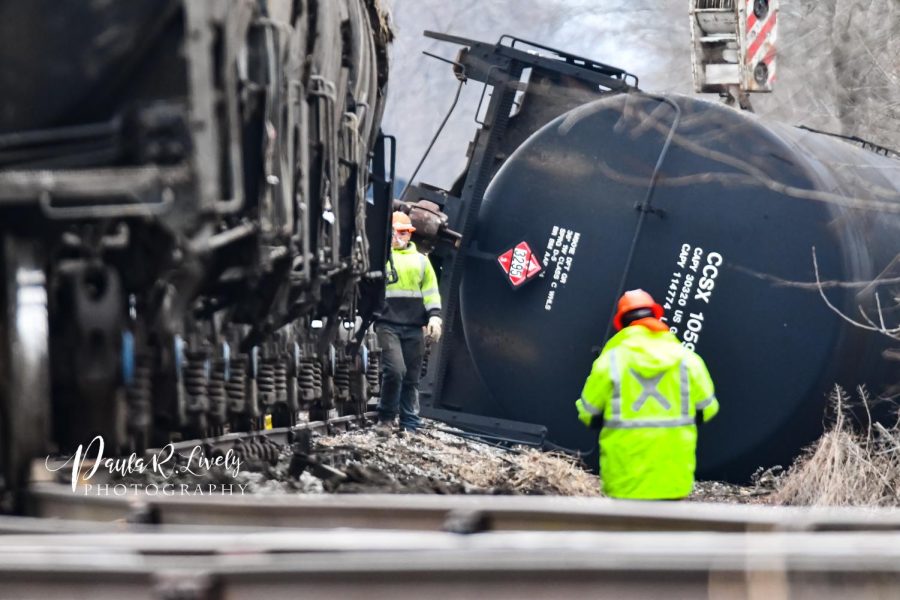Norfolk Southern Train Derails in Rural Ohio, Spills Toxic Chemicals, Kills Wildlife
’96 car Train derailment in Trinway, Ohio USA/Paula R. Lively/flickr/CC by 2.0
The clean-up effort underway as Ohio scrambles to keep the chemicals at bay. Numerous health problems have risen in the wake of the derailment.
February 15, 2023
On Feb. 3, a Northfolk Southern train crossing the Ohio-Pennsylvania Border derailed and spewed toxic chemicals into the surrounding area of East Palestine, Ohio.
The government was adamant that the air was safe after they conducted a controlled release of dangerous chemicals, but the black smoke around the town forced the nearby citizens to evacuate. The town of East Palestine has since been suffering the consequences of the dangerous chemicals, including vinyl chloride, entering the natural surroundings.
Vinyl chloride is a toxic chemical usually used to make many plastic products. It is a volatile substance that can cause dizziness, anesthesia, and frostbite in humans and has been linked to cancer. Worry spread throughout the small town as complaints about having trouble breathing piled up alongside the appearance of a large black cloud, which formed as the result of Norfolk Southern’s decision to “burn off” the spilt chemicals.
Deborah Weese, a nurse at an emergency care center in East Palestine, saw the damage firsthand. “They’re complaining of burning to their lungs, nasal drainage, eyes burning, throat pain, unknown rashes that have started since they’ve been back to their homes,” Weese told Business Insider.
People aren’t the only ones affected by the spill. The addition of vinyl chloride into the environment has the wildlife surrounding East Palestine in rough shape. A lawsuit against Norfolk Southern has been filed, claiming that animals are dying due to the spill almost 20 miles away. Almost 3,500 aquatic creatures were killed in the immediate contamination, though none of them are threatened or endangered species.
Nonetheless, the impact on wildlife was substantial and no one is sure how long it’ll take for the ecosystem to recover.
10,000 dead fish washed up on Belleville lake.
Some people believe it’s due to thousands of gallons of toxic chemicals being shipped to Belleville from the Ohio train derailment, but officials are saying that’s not the case.@WWJ950 pic.twitter.com/sF8SdceFu1— Alexis Ware News (@AlexisWareNews) March 14, 2023
An overheated wheel bearing was the alleged cause of the derailment. The abnormal temperature caused the defect detector to go off and ultimately led to the crew’s attempt to stop the train to check the problem. However, the immediate deceleration caused the bearing to fail, subsequently causing 38 train cars to derail.
“This was 100% preventable … There is no accident,” said Jennifer Homendy, the chair of the National Transportation Safety Board (NTSB). “Every single event that we investigate is preventable.”
The company Norfolk Southern has been under scrutiny by the NTSB for 4 other incidents involving the derailment of trains and the death of employees. These disasters are forcing the government to acknowledge the problems with the railroad industry and take steps to ensure that something like this doesn’t happen again.
As U.S. Senate Commerce Committee Chair Maria Cantwell said, “Every railroad must reexamine its hazardous materials safety practices to better protect its employees, the environment, and American families, and reaffirm safety as a top priority.”





